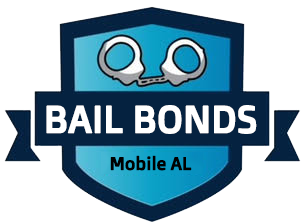
When a judge sets a bond at a bond hearing, the first thought that typically will come up with the defendant will be how will they pay for it? Bonds are purposely set at a high cost to act as a deterrent from skipping town but because of this, it typically requires some thought about how and if they have enough money to be released. The two most common methods to pay for bonds are known as cash and surety bonds. Cash bonds and paid directly to the courts and it is where you front the entire amount once the defendant shows to all their hearings and the case concludes, they have the money returned. A surety bond is different in that you will work with a bail bondsman who only requires a small fraction of the actual bond cost, but that money will not be refundable because it is considered a service fee. Both have benefits and drawbacks, but in most cases, a surety bond is the better option. Here’s why:
You have to come up with a much smaller amount for a surety bond
As previously stated, a cash bond requires the entire amount upfront to be released but a surety bond usually only requires around 10% of the actual bond cost. This means that instead of coming up with $5,000 immediately, someone can be released and only need to come up with $500. This is often much more attainable for someone who may not have easy access to a lot of resources or someone who is willing to co-sign to get them released.
Money is not held
While a cash bond does eventually return money back to the owner, it can take months and even potentially years depending on the severity of the charges and complexities of the case. Once a case concludes, it will be at least a couple of weeks before the money is released and then it has to go through the mail. This can be a huge issue when talking about large amounts of money being tied up. When opting for a surety bond, you give yourself the opportunity to stay liquid. This can be extremely helpful even if you have the resources to pay for a cash bond because it leaves that money freed up in case any other emergency situations pop up.
You can set up payment plans with the courts for fees
One surprise that a lot of people do not know about is the fact that the courts will only refund your money after all fines, fees, and restitution have been paid. This means that it is guaranteed that whatever amount you paid in a cash bond is going to be significantly less when you get it back. For some, this may not be an issue but if you were expecting or needed that full amount back then it may be a better option to go with a surety bond. While you will still be expected to pay these fines and fees, you will have the opportunity to work with the courts on payment plans rather than the courts being able to automatically deduct this money regardless of the fact that you may have been counting on getting that money returned.
In the end, while cash bonds may be ideal for someone with unlimited resources that can afford to have a large amount of money out in limbo, for most a surety bond not only makes the process more accessible but allows more control over how courts will get paid as well.



